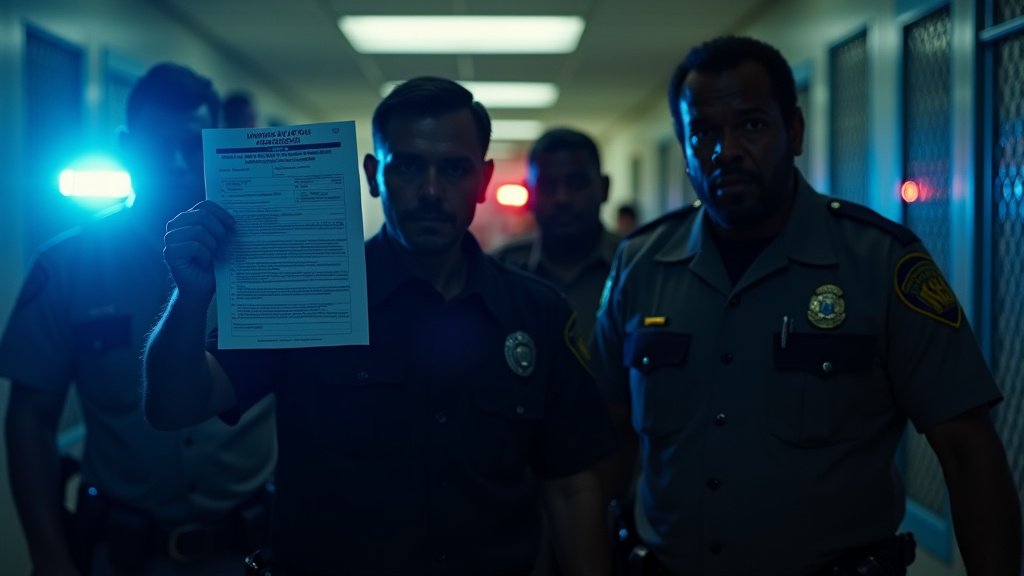U.S. Immigration and Customs Enforcement (ICE) announced the October 24th arrest of Jorge Armando Melendez-Gonzalez, an illegal alien from El Salvador with an extensive criminal record, who ICE states was repeatedly released into American communities due to Fairfax County’s sanctuary policies, highlighting the issue of an ICE rearrest illegal alien. Melendez-Gonzalez, who illegally entered the United States on June 22, 2015, and had an order of removal issued in October 2016, amassed a significant criminal history within the United States. Between March 19, 2018, and July 18, 2025, he was arrested 10 times and faced charges for 19 different crimes, underscoring the challenges with ICE immigration enforcement. These offenses include multiple counts of malicious shooting, unlawful wounding, using a firearm in the commission of a felony, assault and battery, assault on a family member, grand larceny, trespassing, possessing false identification, disorderly conduct, public intoxication, disturbing the peace, and making false statements to law enforcement. One particular incident detailed involved his arrest on August 26, 2023, for allegedly firing into a crowd outside a Merrifield restaurant, resulting in charges for malicious wounding and using a firearm in a felony, an example of an illegal alien criminal record. The fact that an ICE rearrest illegal alien was necessary in this case points to systemic issues.
The Problem of Immigration Detainer Refusal
ICE lodged two immigration detainers against Melendez-Gonzalez with the Fairfax County Adult Detention Center, one in August 2023 and another in July 2025. According to ICE, Fairfax County officials refused to honor these detainers on both occasions, choosing instead to release Melendez-Gonzalez back into the community. This immigration detainer refusal is a key component of the sanctuary jurisdiction debate.
Fairfax County has maintained policies that limit its cooperation with federal immigration enforcement. The county’s “Trust Policy,” adopted in 2021, generally prohibits county employees from disclosing a person’s citizenship status unless mandated by state or federal law, a judicial warrant, or a court order. The Fairfax County Sheriff’s Office has stated it will detain individuals only when a court-ordered warrant is presented, not based solely on ICE’s administrative detainers. Previous investigations have indicated a high rate of denial for ICE detainer requests in Fairfax County; one report from September 2020 found that between May 2018 and May 2020, over 900 detainer requests were refused, with only 14 honored. A study from April 2025 ranked Fairfax County as the third-highest “sanctuary jurisdiction” nationally for refusing over 1,150 ICE detainers in a 2.5-year period, contributing to the need for an ICE rearrest illegal alien.
ICE’s Stance on Sanctuary Policies and ICE Rearrest Illegal Alien
ICE officials have been vocal in their criticism of jurisdictions that limit cooperation with immigration enforcement. Assistant Secretary for Public Affairs Tricia McLaughlin stated, “Fairfax County refused to honor two ICE arrest detainers and chose to release this criminal back onto Virginia’s streets. Virginia sanctuary politicians protected this criminal illegal alien and allowed him to terrorize American citizens. These sanctuary policies make Virginians less safe”. The agency argues that such policies directly undermine public safety by allowing individuals with criminal backgrounds and immigration violations to remain in communities, making an ICE rearrest illegal alien a more frequent occurrence. This reflects the ongoing sanctuary jurisdiction debate and the direct impact on public safety immigration.
Broader Immigration Enforcement Context in Virginia
This case occurs within a broader context of immigration news and enforcement strategies in Virginia. Governor Glenn Youngkin has actively sought to increase cooperation between state and local law enforcement with ICE. In February 2025, he signed Executive Order 47, directing the Virginia State Police and Department of Corrections to enter into agreements with ICE to enforce federal immigration law. This move reflects an ongoing debate about the balance between local autonomy and federal immigration priorities, and the implications for an ICE arrest illegal alien. Meanwhile, immigrant advocacy groups in Northern Virginia have established resources like rapid response hotlines to assist immigrants during ICE actions and to protect their rights. The Fairfax County sanctuary policy has been a focal point in this debate.
The arrest of Jorge Armando Melendez-Gonzalez highlights the persistent tension between federal immigration enforcement objectives and local sanctuary policies, a critical issue in immigration news and public safety discussions across the nation. The repeated failures to honor detainers underscore the challenges and the eventual necessity of an ICE rearrest illegal alien.





